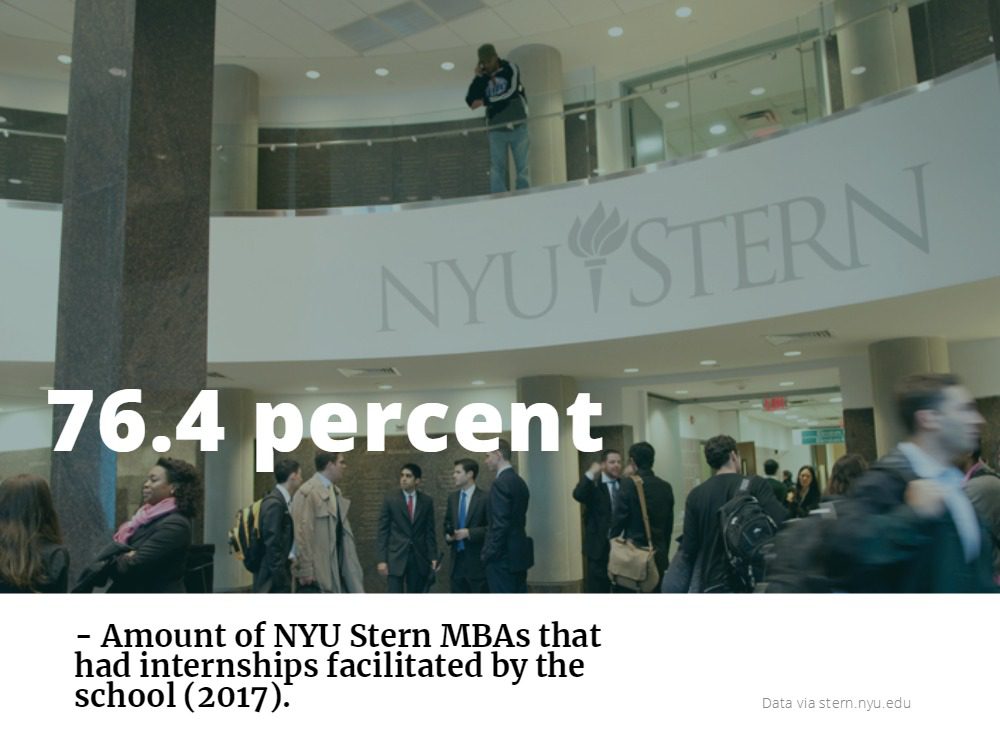Better Advice, Getting Kids To Stop Drinking Soda, and More – Chicago

Let’s explore some of the most interesting stories that have emerged from Chicago business schools this week.
A New Way to Persuade Kids to Drink More Water and Less Soda – Kellogg Insight
Northwestern University’s Kellogg School of Business recently published an article that surveyed a number of strategies that Associate Professor of Marketing Michal Maimaran and his colleagues pursued in collaboration with UNICEF to encourage children to drink more water and less soda.
Maimaran, Stanford’s Szu-chi Huang, BU Questrom’s Daniella Kupor, and the University of Amsterdam’s Andrea Weihrauch attempted to link “water consumption with different goals that kids might want to achieve” by designing four “Drink Water” posters, each with a distinct message: “Be Healthy,” “Learn Faster,” “Make Friends,” and no message.
According to the research, the only poster that spurred bottled-water sales was “Be Healthy,” which Maimaran believes is likely due to the fact that “kids are persuaded by messages that rely on a natural association between the action and goal, such as between being healthy and water.”
You can read more about the research here.
Capitalizing On Sleep-Wake Cycle Can Drastically Increase Digital Ad Profits From Social Media – Mendoza Ideas & News
Recent research from the Notre Dame University Mendoza College of Business shows that “digital content platforms can increase traffic to their websites from social media and boost digital ad profits simply by aligning their posting schedules with target audiences’ sleep-wake cycles, or circadian rhythms.”
Vamsi Kanuri, Assistant Professor of Marketing at Mendoza explains in his new research that, “Consumers engage more with posts containing high-arousal negative information, including anger, stress, anxiety or fear, in the morning than in the afternoon or evening. They engage more with ‘boosted’ (paid to advertise) posts and those requiring higher cognitive processing, such as op-eds or scientific material, in the afternoon.”
“Scheduling Content on Social Media: Theory, Evidence and Application” is due for publication in the Journal of Marketing soon. You can also find more on the research from Mendoza Ideas & News here.
Why is it Better to Give Advice Than Receive It? – Chicago Booth News

Chicago Booth Professor Ayelet Fishbach
A new study from and Penn’s Lauren Eskries-Winkler and Christopher H. Browne Distinguished Professor of Psychology and famed writer Angela Duckworth found that people tend to “benefit more from giving advice than receiving it.”
According to the study, which was recently discussed in the Chicago Booth News, “the very act of giving the advice makes the giver feel powerful and confident. When people lack motivation, receiving advice may actually be harmful … because it undermines feelings of competence.”
The authors note, “In the process of giving advice, advisers may form specific intentions and lay out concrete plans of action—both of which increase motivation and achievement.”
“We hope our findings, which illuminate the motivational power of giving, do just that: goad scientists and practitioners to consider the ways in which struggling individuals benefit from giving.”
“In Giving We Receive: A Counterintuitive Approach to Motivating Behavior” is due for publication in Psychological Science.
You can read the full article from the Chicago Booth News here.
Top MBA Recruiters: Fidelity Investments

When deciding to earn an MBA, you may have a lot of expectations. Whether you are more excited to build a professional network, gain industry-specific training, or develop leadership skills that can take your career to the next level, MBAs can certainly all agree on one thing they hope to get from their program: a job.
MBA graduates can feel more confident entering the job market knowing that top companies throughout the world are looking to recruit talent like them. To help find the perfect fit, MBAs might consider looking at employment reports from their school and other MBA programs around the world. This can help reveal some of the top companies in the country that are actively looking to recruit MBA talent to join the company.
One familiar company is Fidelity Investments, a multinational financial services with its headquarters in Boston, Massachusetts. Fidelity consistently makes the list of companies hiring MBA grads from some of the best business schools in the country, such as MIT’s Sloan School of Management. Originally founded in 1946, Fidelity today is the fourth largest asset manager in the world, with $2.4 trillion in assets.
Knowing that, how can you find Fidelity jobs that are right for you?
What is a Fidelity Career Like for MBAs?
Fidelity’s slogan is ‘blaze your own trail’, which probably explains why ambitious MBAs fit in well at the company. The company offers a number of ways for MBA grads to do so, whether through internships or full-time development programs. Whether graduates are interested technology, finance, investment, or business strategy, there are a variety of Fidelity jobs open for MBAs and MBA graduates.
Fidelity not only encourages their employees to blaze their “own trail,” but aims to create the perfect environment in which to do so. MBAs might be pleased to know the company has been recognized among the “50 Happiest Companies” by Career Bliss in 2018, and in 2017 it was recognized by the National Business Group on Health as one of the “Best Employers for Healthy Lifestyles,” and a “Best of the Best” by the National Business Inclusion Consortium.
Among the other benefits of working in a diverse and happy workplace like Fidelity, the average salary for employees with an MBA degree is $89,271, according to Payscale data. This can vary depending on the specific career path of each MBA, the highest being MBAs in Global Business Management, who make an average salary of $93,000 per year.

Several of the most prominent business schools in the country offer valuable Global Business Management MBA degree. Of which, include:
- The McDonough School of Business at Georgetown University
- The Fox School of Business at Temple University
- The Foster School of Business at the University of Washington (EMBA)
Starting the Fidelity Jobs Search
Fidelity demonstrates a commitment to hiring MBAs through an active recruitment program. The program includes Coffee Chats and Campus Presentations at business schools throughout the country. These visits give current students the chance to meet those currently doing the work that MBAs would likely do at the company, including Research Analysts, Directors of Research, and Portfolio Managers.
MBAs starting at Fidelity typically have two main career paths they will follow. Some may develop into a Portfolio Manager. Others may become a Career Sector Analyst. First round interviews typically occur on-campus, but special arrangements are made for students not on Fidelity’s campus recruitment schedule.
At Fidelity International, the company’s international investment subsidiary, there are additional opportunities for current MBAs to join the company as summer interns. The Equity Research Analyst Summer Internship is an 8-12 week global internship with opportunities in the UK, Hong Kong, Australia, Japan, Korea, Singapore, India, and China.
What Does Fidelity Look For in MBA Candidates?
When hiring MBAs for internships and development programs, Fidelity may have different needs and requirements for applicants depending on the specific field and career they seek. Hard skills tailored to your field of interest are necessary, however. Fidelity also looks for candidates with important soft skills like initiative, ambition, the ability to think independently, and keep cool under pressure.
Interested students can begin searching for Fidelity jobs on the official company website. Applicants should keep in mind the different opportunities available for those currently in an MBA program, near completion, and post-graduation.
Georgetown’s Newest MBA Application Essays Have Been Announced

The Georgetown University McDonough School of Business recently announced its newest application essays for admission to its full-time MBA and all-new Flex MBA programs.
According to the business school, which announced the new essays on Thursday, August 15, “Applicants can now choose one essay among three essay prompts, allowing them to showcase what they believe sets them apart from other applicants, either their leadership experience, how they have overcome challenges, or their values and beliefs.”
Shelly Heinrich, the McDonough School of Business Interim Associate Dean for MBA Admissions, says, “It’s important to us to that our students represent a diversity of backgrounds, experiences, cultures, and more—and we realized that professional and personal experiences showcasing this diversity do not always fit neatly into a single essay prompt.”
“We want to give applicants the flexibility to distinguish themselves from a competitive applicant pool,” Heinrich adds.
Applicants may submit one of the three following Georgetown MBA essays during their application process, in 500 words or less:
- Describe a situation when you were asked to lead outside of your comfort zone. What leadership characteristics did you exemplify in this situation that allowed you to succeed?
- Describe a situation when failure has been your fuel. What was your failure (or when did you not succeed to your full potential), and how did you use this as motivation to move forward and be successful in a future situation?
- Describe the personal brand that you will bring to business school using examples or experiences that support how you’ve developed it. How do you believe your personal brand will strengthen the McDonough community? As you complete your MBA program, how do you hope to see your personal brand evolve through the transformative experience of business school?
Hopeful entrants to the Georgetown McDonough full-time and Flex MBA programs may apply on October 9, 2018; January 7, 2019; April 1, 2019; and May 1, 2019. Click here to learn more about the school, its MBA programs, and admissions process.
First Impressions: No Need to Panic! – Chicago News

Let’s explore some of the more interesting stories that have emerged from Chicago business schools this week.
The Personal Statement: No Need to Panic! – Inside Kellstadt
First impressions are stressful across the board, which can make the impression you attach to your business school application all the more nerve-wracking. Current DePaul Kellstadt MBA student Kristen Hall took to the official Kellstadt blog to offer some insights into crafting the perfect personal statement.
In “The Personal Statement: No Need to Panic!” she writes, “My advice to prospective students writing their personal statements would be to share what inspired you to apply to Kellstadt. Each applicant has a different story and connection to the program and sharing your own “Aha!” moment is a way to set yourself apart from other applications.”
You can read Hall’s entire piece here.
How a Genetically Modified Soybean Helped Modernize an Economy – Kellogg Insight
Northwestern University Kellogg School of Management Associate Professor of Finance Jacopo Ponticelli recently co-authored new research that illuminates how “countries develop from agrarian economies into more industrialized ones” by examining the impact of Monsanto’s genetically modified Roundup Ready soybean seed (a.k.a. the Maradona soy) on Brazilian agriculture in the early 2000s.
The research, which was co-authored by University of Zurich economist Bruno Caprettini and Paula Bustos of Spain’s Center for Monetary and Financial Studies, found that “the seed freed up farm laborers to find other jobs, allowing Brazil’s industrial sector to grow, [and] helped farmers put more money in the bank, which led to urban centers getting access to cheaper credit, allowing banks to finance more manufacturing and services firms.”
Ponticelli suggests that Brazil’s example illustrates how “bumps in agricultural productivity can ripple through an entire economy, not only bolstering the manufacturing sector, but exporting fresh capital to the urban centers where new industries tend to grow.”
You can find the full article here.
Mendoza Finance Prof Wins Research Award for Linking Electricity Usage with Stock Returns – Mendoza Ideas & News
Notre Dame University Mendoza College of Business Professor of Finance Zhi Da received the Journal of Financial and Quantitative Analysis’ 2017 William F.Sharpe Award for Scholarship in Financial Research this past May in recognition of his innovative research, which finds that the “growth rate of industrial electricity usage predicts future stock returns for up to one year.”
According to Professor Da’s paper, “industrial electricity usage tracks the output of the most cyclical sectors. So high rate of growth for industrial electricity usage today—indicating an increase in production due to a company’s expectation of increased sales — predicts low stock returns in the future, consistent with a principle called the countercyclical risk premium, [which] states that the market premium tends to run counter to the business cycle.
According to the article, “The Sharpe Award is intended to foster excellence in financial research. Recipients receive a $5,000 prize for the best article published each year in the JFQA.”
You can find more about the reward and Da’s work here.
Columbia Business School Reveals 2018-19 Essays and Deadlines

Right after the eve of graduation, Columbia Business School formally introduced its newest essays and deadline dates for the upcoming 2018-19 academic year.
Columbia Business School MBA Essays (2018-19)
Goal: What is your immediate post-MBA professional goal? (50 characters)
Essay #1: Through your resume and recommendations, we have a clear sense of your professional path to date. What are your career goals over the next 3-5 years and what, in your imagination, would be your long term dream job? (500 words)
Essay #2: How will you take advantage of being “at the very center of business”? CBS urges those undertaking essay number two to watch this video from Dean Glenn Hubbard (250 words).
Essay #3: Please provide an example of a team failure of which you have been a part. If given a second chance, what would you do differently (250 words)?
Optional Essay: What else would you like to tell the Columbia admissions committee? You can use this space to provide your explanation if there any areas of concern in your own academic or personal history. This essay does not need to be traditionally formal and can include bullet points (maximum 500 words).
Columbia Business School MBA Deadlines (2018-19)
Early Decision (January) – October 3, 2018
Merit-Based Deadline – January 4, 2019
Final Regular Decision – April 10, 2019
What is a Summer Internship and Why Should I be Interested?

The idea of an internship may evoke images of coffee runs and paperwork for many business students, but in reality summer internships can be a crucial—and incredibly lucrative—part of every student’s business education and early career.
Around the country and world, top companies open their doors each summer for students interns to gain on-the-job experience, make professional connections, and get a glimpse at what their post-MBA future has in store. Many business schools now even require an internship between a student’s first and second years in their MBA program.
But what really is a summer internship, and why is it seen as so important for MBA students? We take a look at why the summer internship plays such a crucial role for business students, and the ways you can make the most of your experience.
What is a Summer Internship?
Although the idea of internships began as an opportunity for medical students to gain hands-on experience in the field, they can be found today in nearly every industry, organization, and type of institution. From massive corporations to the smallest nonprofit, summer internships have become a key part of both running a business and starting a career. And with the win/win nature of most summer internships, it’s understandable why: the student gets to spend their summer break making connections, gaining experience, and often making money, while the company gets temporary help from someone who just might eventually become a dedicated employee. Because of the invaluable on-the-job skills attained during an internship, many business schools now even require them between a student’s first and second year.
But the reason to get a internship goes beyond the experience that can be gained over the course of a summer or semester: a LinkedIn survey looked at the 3.5 million users with internships in their job history and discovered 600,000 users who returned to those same companies in full-time positions. Furthermore, he industries in the survey that boasted the highest likelihood of an internship becoming a full-time job are well aligned with an MBA’s experience—31 percent of internships in accounting and 25 percent of internships in management consulting became full-time jobs.
Even for those who don’t return to the same company they interned for to work full-time will find that having an internship on their resume speaks volumes for potential employers. With 86 percent of employers looking to hire recent MBA graduates (according to a GMAC survey)—a figure that continues to grow—it’s more important than ever to be able to easily demonstrate your value and experience to prospective employers.
How Do I Find a Summer Internship?
While it’s not impossible for students to venture out on their own and apply directly for internships they want, one of the best parts of being in an MBA program is having the support and resources of the business school behind you. Especially since so many programs now require internships as part of the MBA process, the university has become a crucial part of helping students to find the perfect internship for their interests and career goals.
A quick look at employment reports from a major university like NYU’s Stern School of Business can reveal just how important a school’s career development office can be when it comes to finding that perfect internship. At NYU Stern, 76.4 percent of internship offers accepted by the Class of 2017 were facilitated by the school, compared with just 23.6 percent initiated by the students. And while roughly half of the offers initiated by students came from existing personal contacts, the school facilitated offers came from a variety of different sources. Whether it was on-campus scheduled interviews at the school, job postings, Stern supported activities like clubs and conferences, business school alumni or career fairs, the school was able to lead students to internships in consulting, entrepreneurship, healthcare, media and entertainment, and more.

Why Other Benefits are There to a Summer Internship?
Even if the thought of building a professional network and opening the potential for full-time employment through an internship sound appealing, it’s likely you still have money on the mind. It’s understandable, too, since so much of the discussion surrounding internships today bring one word to mind: unpaid.
It’s certainly true that unpaid internships make up a large portion of the summer internships that are available, and for many students it’s not fiscally possible to lose a summer of working to gain professional experience. Thankfully, business schools understand this and strive to find students internships that will not just fit their career goals but their financial goals as well.
Due to the level of the work and time commitment, most internships for MBAs are paid, and often pay quite well. So no need to sacrifice career growth for summer funds—in fact, the two things go together perfectly! While it varies slightly by industry, summer interns in the Class of 2018 at Northwestern University’s Kellogg School of Management made a monthly average salary of anywhere from $3,500 (nonprofit industry) to $10,734 (consulting).
Summer internships can be a crucial part of the MBA experience, and it’s clear to see why: with the potential of an internship to turn into a full-time job and the financial benefits of the experience, MBAs should be banging down the door for the opportunity. But thankfully they don’t have to. Business schools and their career development offices have made it a priority to get students the internship of their dreams at the salary perfect for their wallets.
